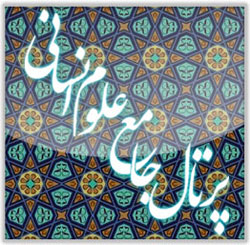Participatory Governance and Sustainable Rural Tourism Development: A Case Study of Qalat Village, Fars Province
Keywords:
Sustainable tourism development, good governance, Qalat village, social participationAbstract
This study aimed to examine the role of participatory governance dimensions, particularly “participation” and “managerial effectiveness and efficiency,” in predicting sustainable rural tourism development in Qalat village, Fars Province. A descriptive-analytical quantitative survey design was adopted. The statistical population included 7,286 residents and stakeholders of Qalat village, from which 367 respondents were selected using stratified random sampling based on Cochran’s formula at a 95% confidence level and a 0.05 margin of error. Data were collected using a validated and reliable researcher-designed questionnaire (Cronbach’s alpha = 0.87). Descriptive statistics, Pearson correlation, and multiple linear regression analyses were conducted using SPSS version 26. Pearson correlation results indicated a significant positive relationship between “participation” and sustainable rural tourism (r = 0.58, p < 0.001) and between “managerial effectiveness and efficiency” and sustainable rural tourism (r = 0.42, p < 0.001). Multiple regression analysis revealed that both participation (β = 0.28, t = 4.50, p < 0.001) and managerial effectiveness and efficiency (β = 0.19, t = 3.10, p = 0.002) significantly predicted sustainable rural tourism, jointly explaining 34% of the variance (R² = 0.34). The findings highlight that strengthening genuine community participation and improving managerial effectiveness and efficiency form the foundation for achieving sustainable rural tourism. Leveraging local cultural and natural assets through participatory and efficient governance provides a robust framework for economic, social, and environmental sustainability in rural destinations.
Downloads
References
1. Rezvani MR. Development of Rural Tourism with a Sustainable Tourism Approach. Tehran: University of Tehran Press; 2006.
2. Aazami M, Shanazi K. Tourism wetlands and rural sustainable livelihood: The case from Iran. Journal of Outdoor Recreation and Tourism. 2020;30:100284.
3. Khadem Hosseini O, Rahmani B, Khaledi S, Asanlu A. Explaining an Optimal Strategy Based on Factors Influencing the Development of Sustainable Rural Tourism in Semi-Arid Areas (Case Study: Abadeh County). Spatial Planning (Geography). 2024;55:5-26.
4. Fun FS, Chiun LM, Songan P, Nair V. The impact of local communities' involvement and relationship quality on sustainable rural tourism in rural area, Sarawak. The moderating impact of self-efficacy. Procedia-Social and Behavioral Sciences. 2014;144:60-5.
5. Erwin JE, Sturm T. Living in the Wake of Rural Irish Troubles: Building an Institution for Sustainable Peace Through Emotive Out-of-Place Tourism. 2022:189-206.
6. Pazaki M. Designing a paradigmatic model for sustainable rural tourism entrepreneurship development with an emphasis on strategic orientation and green intellectual capital (Case study: Villages of Shahroud County). Village and Development. 2024;27(2).
7. Cunha C, Kastenholz E, Carneiro MJ. Entrepreneurs in rural tourism: Do lifestyle motivations contribute to management practices that enhance sustainable entrepreneurial ecosystems? Journal of Hospitality and Tourism Management. 2020;44:215-26.
8. Ayneh M, Almasi Fard MR. A model for business in the development of rural electronic tourism industry in Kermanshah Province. Rural and Sustainable Development Space. 2024;5(3):154-71.
9. Moridsadat P, Moamelvand S. The factors affecting sustainable entrepreneurship development in rural tourism (case study: Goleyjan rural district, Tonekabon county). Researches in Earth Sciences. 2020;10(4):91-107.
10. Sulistyo A, Fatmawati I, Nuryakin N. Creating Sustainable Tourism Through Innovation [Digital-Based Marketing in the Tinalah Rural Tourism]. 2022:400-16.
11. Putra AK, Islam MN, Hilmi R, Khairunisa T, Huda IAS. Geography Virtual Reality for Learning About Ecotourism and Rural Sustainability. Kne Social Sciences. 2022.
12. Liu XD, Zhang J, Zhou Z, Feng Z. Investigating the Impact of Environmental Graphics on Local Culture in Sustainable Rural Cultural Tourism Spaces. Sustainability. 2023;15(13):10207.
13. Mousavi R, Najafabadi MO, Mirdamadi SM, Hosseini SJF. Rural sports and local games: missing link between sports tourism development and sustainability. 2022;26(3):201-23.
14. Mohammadi S. Strategic planning of health tourism development in Kurdistan province with emphasis on attracting health tourists in Kurdistan Region of Iraq. Human Geography Research. 2022;54(3):1083-105.
15. Marunda E. The Enhancement of Sustainable Tourism Education and Training to Primary School Level and Rural Communities in Zimbabwe. Journal of Tourism Management Research. 2015;2(1):9-23.
16. Yang F. Exploring Students’ Push and Pull Motivations to Visit Rural Educational Tourism Sites in China. Sustainability. 2023;15(20):14739.
17. Yanan L, Ismail MA, Aminuddin A. How has rural tourism influenced the sustainable development of traditional villages? A systematic literature review. Heliyon. 2024;10(4):e25627.
18. Wibowo A, Muhammad DRA, Lestari E, Karsidi R, editors. Development of a Language Tourism Village Based on Local Natural Resources and the Local Community (A Case Study in Karanganyar Regency, Central Java, Indonesia). 1st International Conference on Sustainable Agricultural Socio-economics, Agribusiness, and Rural Development (ICSASARD 2021); 2021.
19. Iannucci G, Martellozzo F, Randelli F. Sustainable Development of Rural Areas: A Dynamic Model in Between Tourism Exploitation and Landscape Decline. Journal of Evolutionary Economics. 2022;32(3):991-1016.
20. Hesam M, Bagheri F, Atefi A. Assessment of Tourism Development Compliant With Ecotourism Principles, Case Study: Guilan, Iran. Journal of Sustainable Rural Development. 2020;4(2):263-76.
21. Ghorbani R, Salamati S, Mohajeri L, Arzhangi H. Assessing the effects of tourism on the development of the urban economy )Case study: Ardabil city. Geography and Human Relationships. 2021;3(4):542-56.
Downloads
Published
Submitted
Revised
Accepted
Issue
Section
License
Copyright (c) 2025 Mohammad Sadegh Tadayoni Nezhad (Author); Samineh Bahadori Jahromi; Delshad Abdolhamid, Payam Paslari, Seyed Koorosh sarvarzadeh (Author)

This work is licensed under a Creative Commons Attribution-NonCommercial 4.0 International License.










